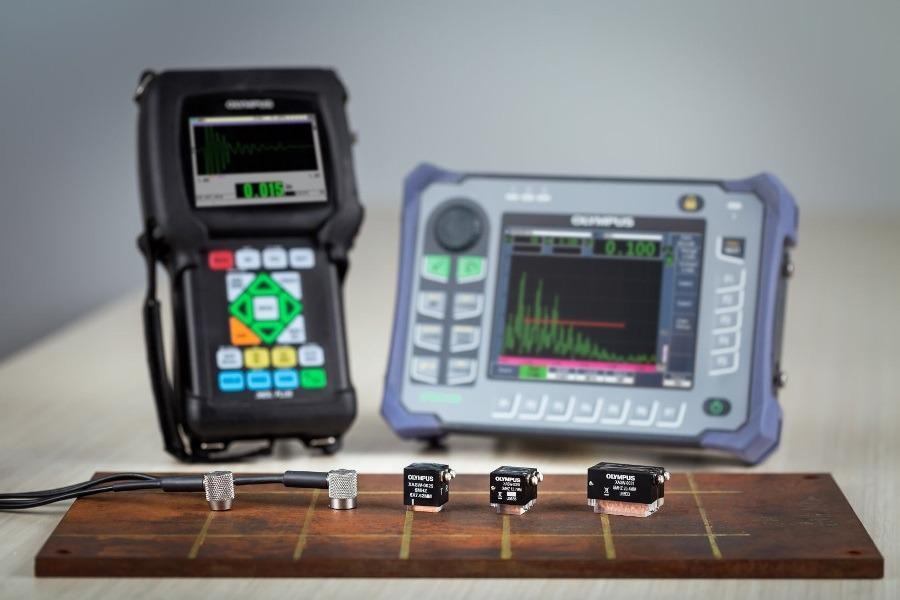Olympus’ new DC series (DC1–DC5) dual element transducers provide inspectors with a complete corrosion monitoring toolbox for pipeline and tank integrity. Optimized for corrosion and thin materials, the transducers work with the NDT instruments and ultrasonic inspection procedures used in the oil & gas, energy and mining industries.
 Versatile transducers go beyond corrosion monitoring to include pipe weld testing. Image Credit: Olympus Scientific Solutions Americas NDT
Versatile transducers go beyond corrosion monitoring to include pipe weld testing. Image Credit: Olympus Scientific Solutions Americas NDT
Depending on the application, any one or a combination of these five transducers offers improved corrosion monitoring and defect sizing. As field inspections change, inspectors can benefit from having the complete set of transducers with a total combined thickness range of 0–2 in. (0–50.8 mm), as well as the extra pipe weld inspection tool with the DC3 model.
Cleaner Signals
All models provide a cleaner signal than single element transducers and offer less ring down than comparable models—helpful for resolving smaller defects, inspecting close to the surface and differentiating between two indications.
Compact
Inspect hard-to-access areas such as boiler tubes thanks to low-profile designs and small tip diameters (DC1 and DC2 models), as well as integrated wedges (DC3).
Versatile
The DC3 model takes the series beyond corrosion monitoring and thickness measurement to include pipe weld testing and other thin-wall material inspections. Fast and reliable, the transducer performs high-speed manual weld inspections similar to comparable models.
Cost-effective
Featuring a thick-walled, wear-resistant housing (DC2 model) and replaceable wedges (DC4 and DC5), the transducers are built to last. A heat-resistant delay line up to 150 °C (300 °F) on the DC1 and DC2 models helps reduce maintenance time for elevated-temperature pipe and tank inspections.
Efficient
Pairing the transducers with the Olympus EPOCH™ 650 or 6LT flaw detectors or the 38DL PLUS™ thickness gauge* enables accurate, efficient corrosion mapping.
For more information about the DC series dual element transducers and other industrial solutions, visit: Olympus-IMS.com.